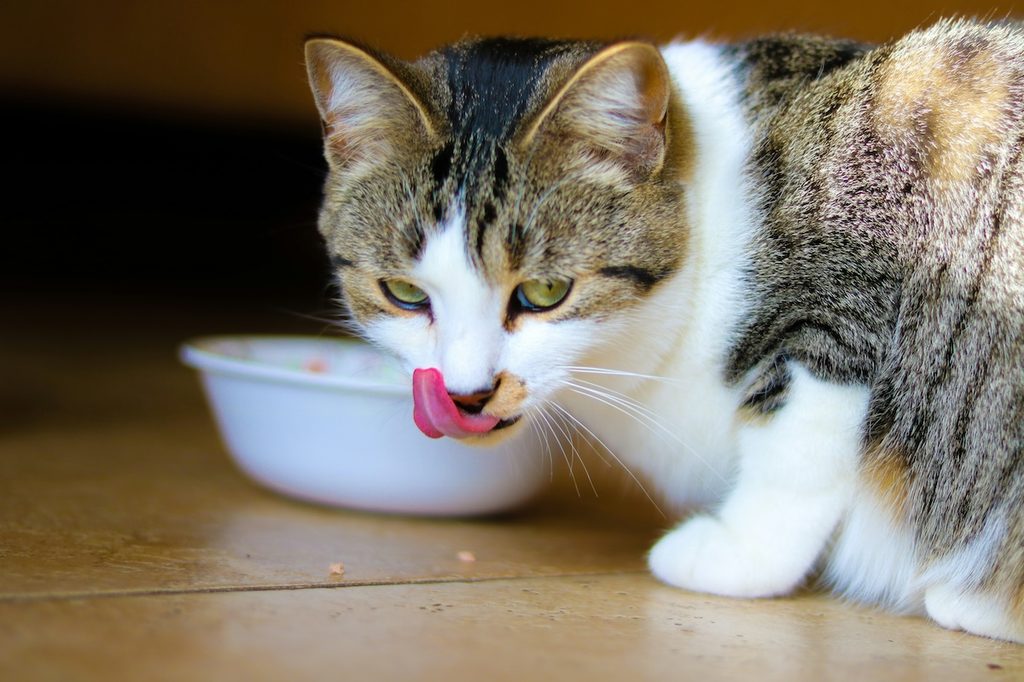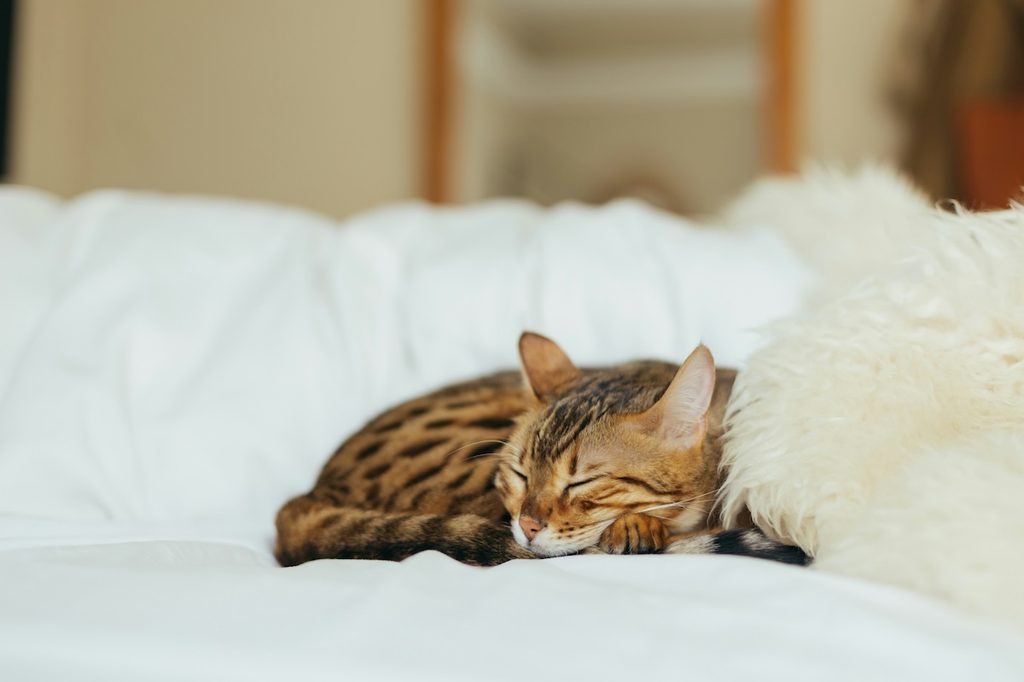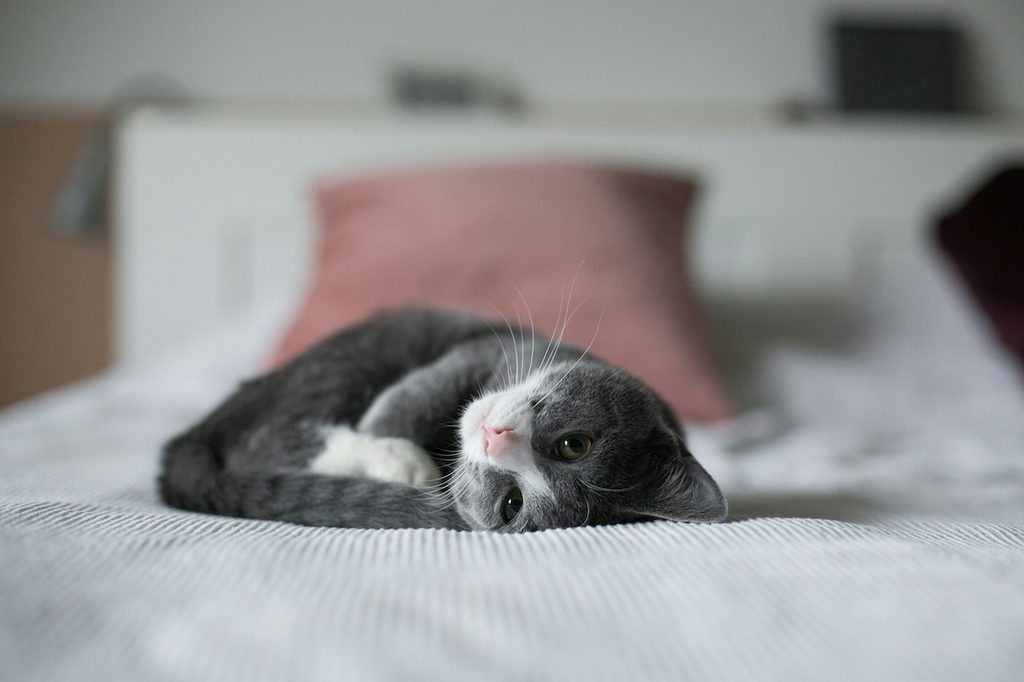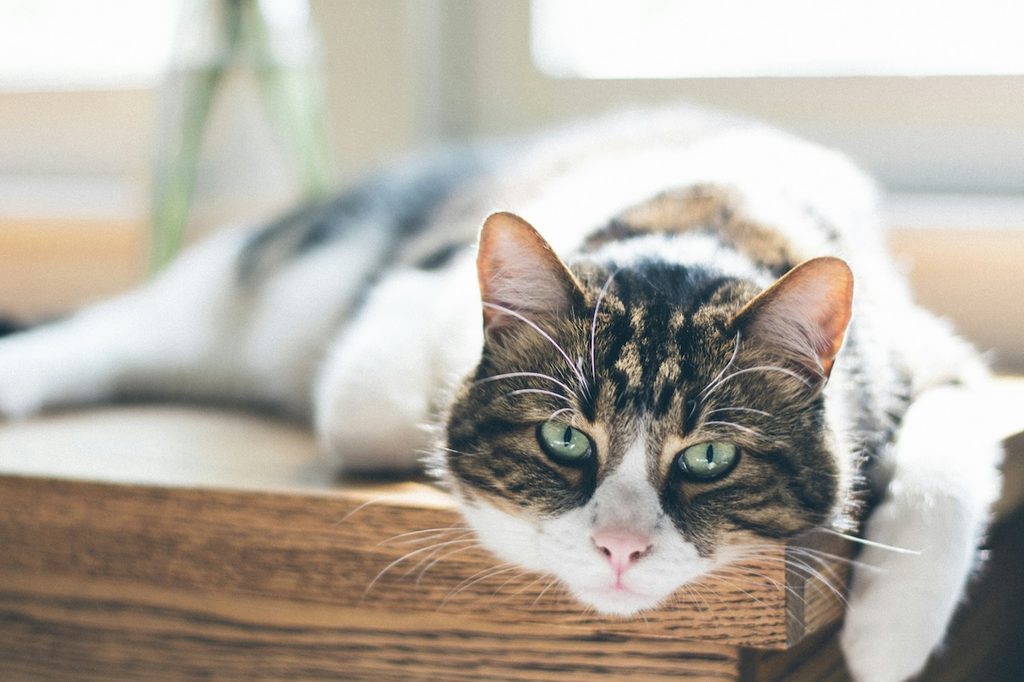
We can’t read minds or speak Cat, but our furry friends give us clues into their well-being (and thoughts) through behaviors and habits. For instance, yes, your cat is chirping at birds because they want to head outside for a hunt. You can take Kitty out of the wild but you can’t take the wild out of your contemporary sofa lion.
As much as your cat’s desire to snag a bird may make you question their otherwise kind demeanors, other behaviors are less expected, such as if your cat throws up after eating. Is this normal? An inherited trait from wild ancestors (wolves and coyotes regurgitate food to feed their young)? Good questions. Here’s what to know about and what to do if your cat throws up after eating.
Why do cats throw up so much?

Healthy cats don’t vomit regularly. If a cat throws up after eating (or constantly in general), you’ll want to call the vet. Not every reason for chronic upchucking is a life-threatening one, but at the very least, your cat is uncomfortable, and there may be a way to help them feel better. Your vet may suspect or diagnose your cat with one or more of these issues if they frequently throw up.
Adjusting to new food
Generally, you’ll want to transition a cat to their new food slowly. Felines are famously picky eaters, and their preferences can have more to do with digestion than taste. Your cat’s belly may need some time to adjust to the new food gradually. If you go cold turkey — and maybe you had to because of a supply issue with the food — your cat may respond by throwing up after eating.
Whenever possible, slowly wean your cat off their regular food and onto the new type over a 7- to 10-day span. For instance, you might give 25% of the new food and 75% of the old food for a few days and then incrementally shift.
Intolerances or allergies
Some cats may have food allergies or intolerances. Vets usually have your cat on an elimination diet for about eight weeks. If the frequent vomiting continues, they might suggest following a different diet, such as specialized food, to avoid allergy flare-ups. Food allergies are often accompanied by chronic itching, biting, and red, patchy skin.
Eating too fast
While many cats may nibble at their food throughout the day, some scarf breakfast down like someone else will steal their meal. Perhaps your cat spent time in a setting where they had to compete for resources. Still, eating too fast can cause digestive discomfort (and throwing up). Give Kitty small food throughout the day to reduce this behavior and side effects.
Toxic foods/materials
Some foods we love, such as chocolate, dairy, and garlic, are toxic to cats. Plants like lilies can also pose dangers, as can materials in their toys, like yarn, if ingested. Call Animal Poison Control or the vet if you suspect your kitty has eaten something toxic, particularly if they also show increased thirst or lethargy. Prompt care can be a life-saving measure.
Blockages and severe health issues
Items (like yarn) and unfortunately tumors, can cause a cat to have trouble keeping food down. Throwing up can be the first noticeable symptom of cancer in some cats. Other signs that may accompany this behavior include:
- Lethargy
- Weight loss
- Increased or decreased appetite
- Increased or decreased thirst
- Pooping outside of the litter box
Call the vet. Sometimes, cancers, especially when caught early, can be treated to extend your cat’s life (and the quality of those years).
Vomiting vs. regurgitating in cats

You may have heard that some species, like wolves, regurgitate food after hunting to feed their young. Regurgitated food is only partially digested. While gross, this behavior is natural but isn’t something cats do. Though kitties have some interesting quirks and habits, upchucking food to feed their babies isn’t one of them.
Call your vet if a cat is regurgitating partially digested food. Like throwing up, this behavior warrants a follow-up. Often, cats regurgitate food because they eat too fast, an issue usually solved by spacing out feedings. However, your vet can provide accurate insights into your cat’s situation.
Final thoughts

You’ll want to call your vet if your cat throws up after eating constantly. A one-off instance may be shrugged off if you know your cat didn’t eat toxic foods and isn’t displaying other symptoms of distress, such as lethargy and decreased appetite. However, constant throwing up is not typical cat behavior.
Sometimes, a cat might be allergic to foods or eating too quickly. Switching foods or feeding smaller but more frequent meals can nix these issues. If changing a cat’s diet for reasons other than allergies, go slowly whenever possible. Transitioning too quickly can trigger vomiting. Frequent throwing up can also be a sign of severe health issues, including cancer, so be sure to call the vet to rule these out. Prompt care can result in the best outcomes.



